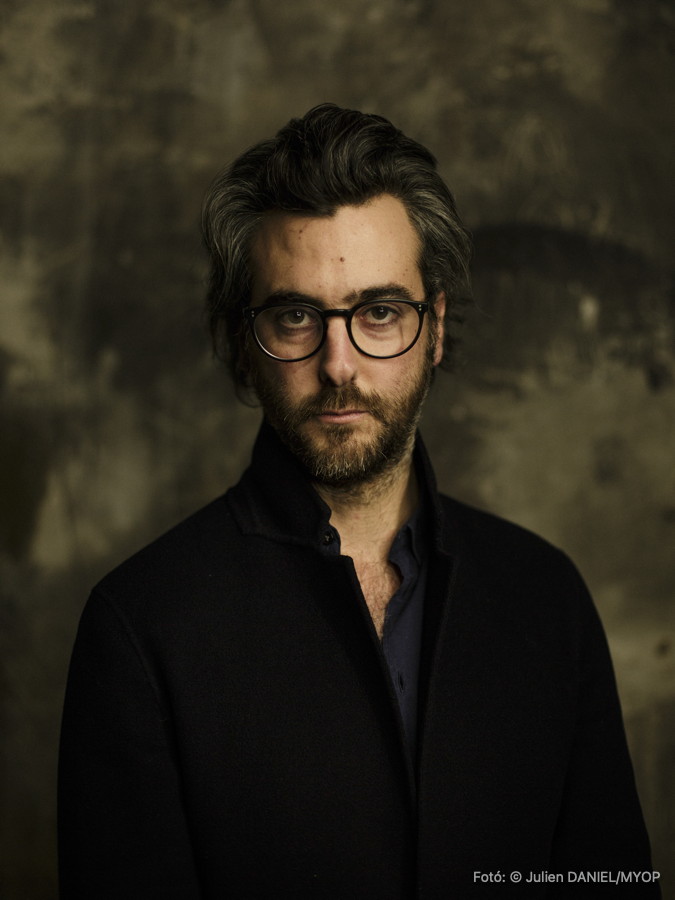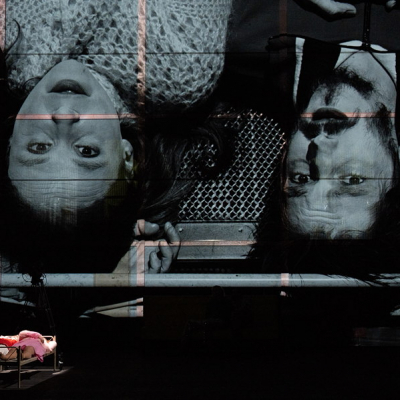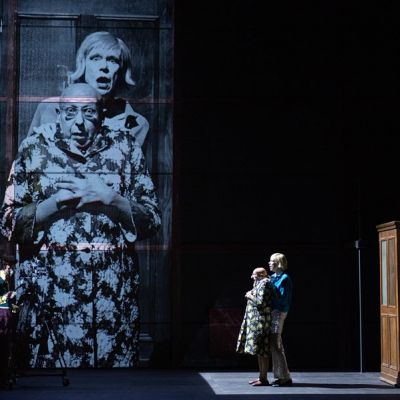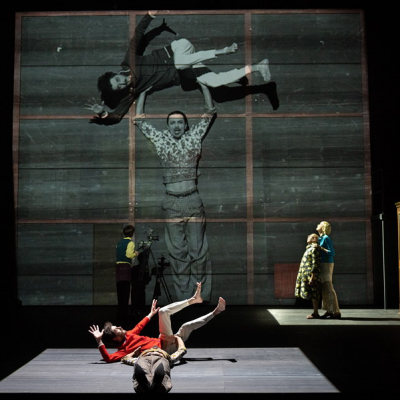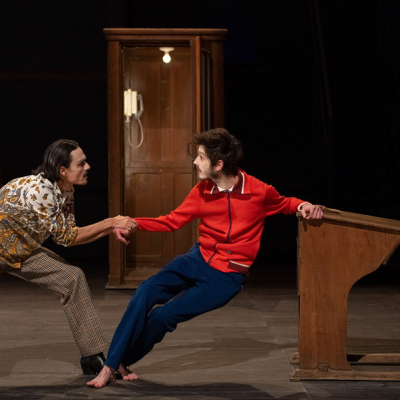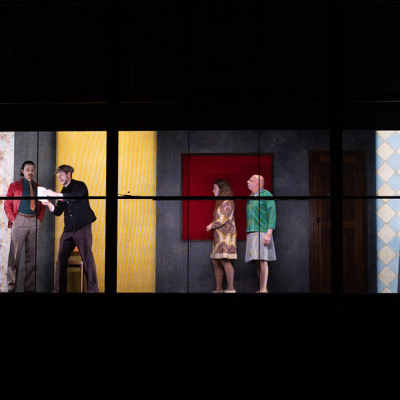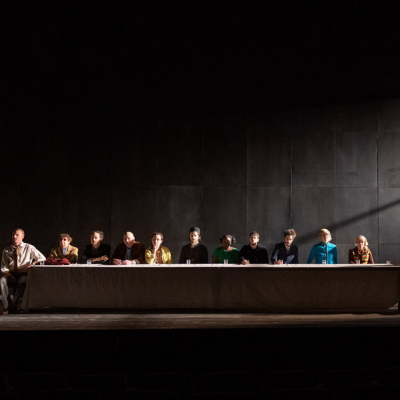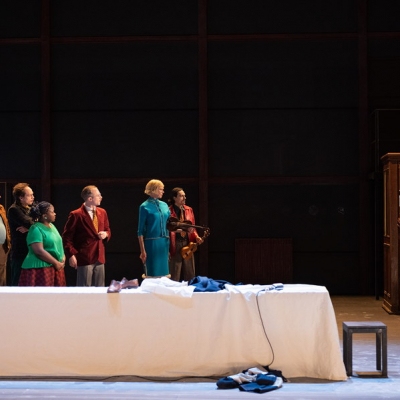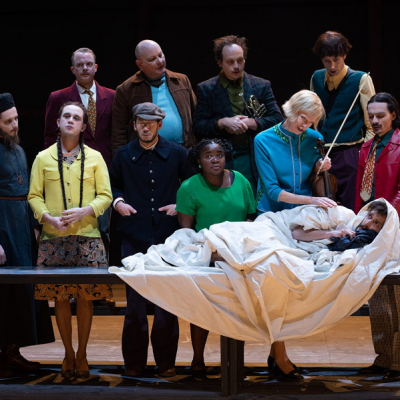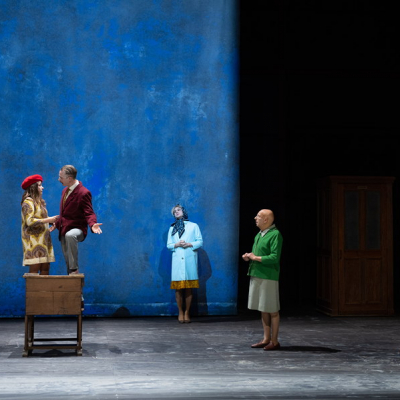Nicolaï Erdman: The Suicide, soviet vaudeville 12
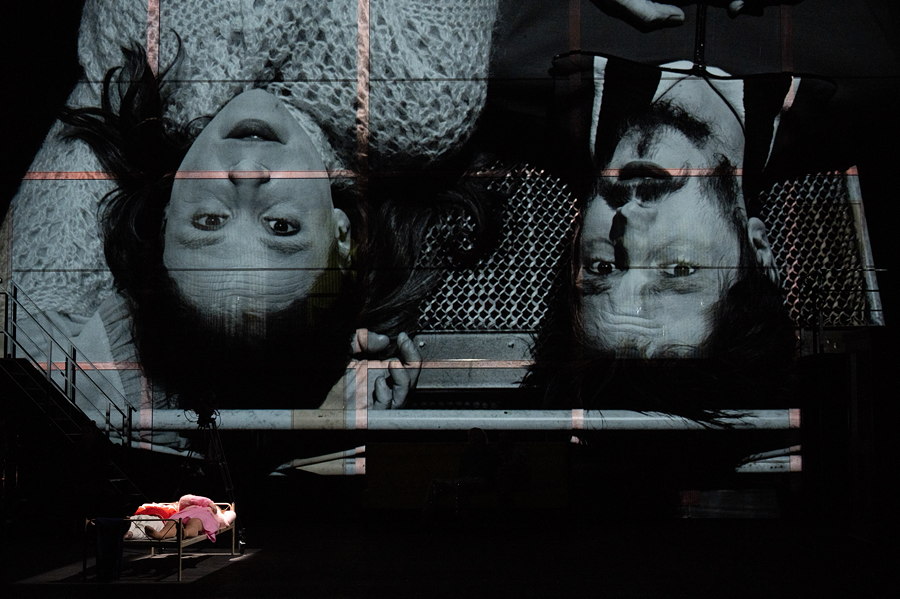
Théâtre National Populaire, Villeurbanne, France
Director: Jean Bellorini
Performed in French with Hungarian and English subtitles
2 hours 15 minutes.
Soviet Union, late 1920s. In the middle of the night, Semione Semionovitch, unemployed and miserable, tries to relieve his hunger by swallowing a liver sausage. He wakes up his wife, an argument breaks out and the pitiful hero disappears, threatening "his last breath". Semionovitch’s wife, convinced that he will end his life, calls for help. The news spreads, attracting the neighbourhood and soon a whole gallery of characters intrude upon the unfortunate event. Thoughts of posthumous glory overtake Semionovitch, prompting the thought: by killing himself, could he finally become someone? Written against the crossroads of the twenties and thirties, the play was banned before it could be performed. Victim of the authoritarian and repressive policies of the Soviet government, Nicolaï Erdman was arrested, shortly after writing The Suicide, for having signed a short satirical poem about Stalin. His two plays (The Mandate and The Suicide) were definitly banned. He was sent for three years to deportation and then placed under house arrest. He never resumed his career as a playwright, keeping within him "an eternal fear". This is a feeling that the "hero" of The Suicide, Semyonovich, is imbued with. An empty shell, a mediocre and insignificant being, Semyonovich seems to take on a life of his own only by the interested eyes of the others. On the threshold of his death, he is finally by a breath of life – a terrible, suspended whisper. Tick, tock. In the satirical tradition of Gogol, Nicolaï Erdman here summons people, notables, ecclesiastics, shopkeepers who persist in finding meaning in their lives, even though all their previous reference points have been destroyed. In this and asphyxiated society, a simple lie can reveal a chain of impostures until the final explosion. Nicolaï Erdman's text continues to resound with force, so much so that it contains a virulent critique of all oppressive political regimes and a biting reflection on the meaning of existence. The story of this pathetic little man who struggles in the chaos challenges our times, our desires, our resignations. How to resist oppression without being a hero? Jean Bellorini and his troupe of actors, singers and musicians venture into this political farce that is as juicy as it is chilling, with a relentless mechanic and a vaudeville feel. The choral work, the musicians, and the costumes designed by Macha Makeïeff bring out the humour and madness of a score that moves at the unbridled rhythm of André Markowicz's translation. And finally, when the sets and masks fall, the theatre remains, an immense declaration of love to life.
Actors
François Deblock,
Mathieu Delmonté,
Clément Durand,
Anke Engelsmann,
Gérôme Ferchaud,
Jacques Hadjaje,
Clara Mayer,
Liza Alegria Ndikita,
Marc Plas,
Antoine Raffalli,
Matthieu Tune,
Julien Gaspar-Oliveri,
Damien Zanoly
Musicians: Anthony Caillet, Marion Chiron, Benoît Prisset
Stage designer: Véronique Chazal, Jean Bellorini
Costume designer: Macha Makeïeff assisted by Laura Garnier
Dramaturge: Melodie-Amy Wallet
Composer: Sébastien Trouvé
Jean Bellorini


